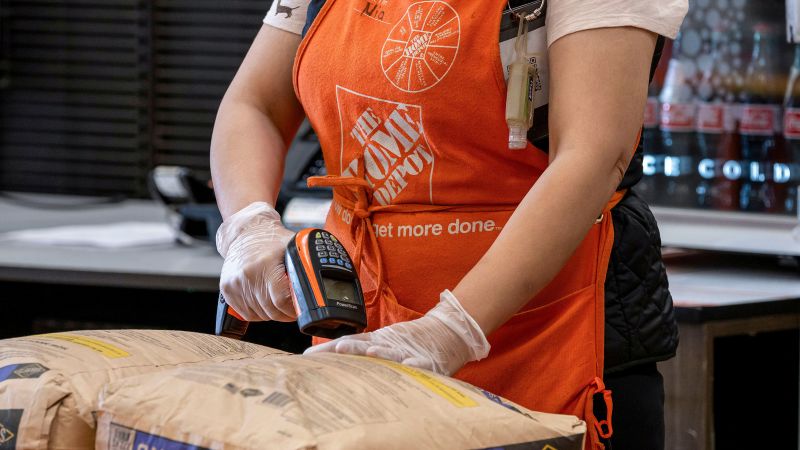Home Depot, renowned as America’s largest home improvement retailer, recently announced potential forthcoming price increases due to the rising costs associated with tariffs. This statement, made on Tuesday, reflects the company’s strategic response to economic factors impacting its pricing structure. The discussion surrounding tariffs has gained heightened visibility in the context of domestic and international trade policies, particularly since the implementation of the Trump administration’s import taxes.
In a discussion regarding these price changes, Chief Financial Officer Richard McPhail emphasized that there are certain imported goods facing significantly higher tariff rates compared to the previous quarter. He addressed this concern in an exclusive interview with the *Wall Street Journal*, which was later confirmed by Home Depot to *CNN*. McPhail’s comments indicate that while the company anticipates some modest price adjustments across a range of product categories, these changes will not be uniform across the board. He noted, “So as you would expect, there will be modest price movement in some categories, but it won’t be broad based.”
Looking back, during a prior earnings call three months ago, Home Depot was hesitant to make definitive statements regarding the implications of tariffs on their pricing strategy. They mentioned that the tariffs could potentially lead to the discontinuation of certain items from their inventory, reflecting the retailer’s cautious approach to market volatility. Currently, Home Depot reports that nearly half of its inventory is sourced from international suppliers, prompting the retailer to advocate for diversification in its supply chain. This includes efforts to ensure that no single foreign country accounts for more than 10% of its imported goods.
Despite experiencing a 5% increase in sales year-on-year in the recently reported quarter, Home Depot faced a slight decline in net income, which fell by 0.2%. The increase in operating costs contributed to this trend, leading the company to forecast a potential 2% decrease in earnings per share for the full year. Economic uncertainties coupled with elevated interest rates have been influential factors that seem to deter consumers from pursuing substantial home renovation projects. As CEO Ted Decker noted during the earnings call, “Certainly some relief on mortgage rates…could help.” With mortgage rates lingering just under 7% for most of the year, consumers are feeling the pressure.
Consumer sentiment has a significant role in the current climate of home improvement construction. Decker explained that the foremost reason customers, both individuals and professional contractors, cite for postponing major projects is economic uncertainty. This concern supersedes worries about project pricing or labor availability by a considerable margin. Executives at the company remain optimistic about the eventual re-emergence of large-scale projects and associated demand, offering a sense of reassurance amid caution.
McPhail provided further insight into the mindsets of contractors and consumers alike, remarking on their prevailing hesitation: “Our pros… say that their customers tell them they’re deferring projects. They’re not canceling projects. Home improvement demand persists.” This commentary reflects an underlying belief among Home Depot leadership that despite current economic challenges, there remains a demand for home improvement services. The company is thus focused on preparing itself to seize opportunities when market conditions ultimately improve.
In summary, Home Depot’s approach to potential price increases due to tariffs underscores the intricate interplay between international trade policies and consumer behavior. With ongoing economic uncertainties, Home Depot is diligently assessing its operations and positioning itself strategically for a promising trajectory in home improvement demand in the potential future.












